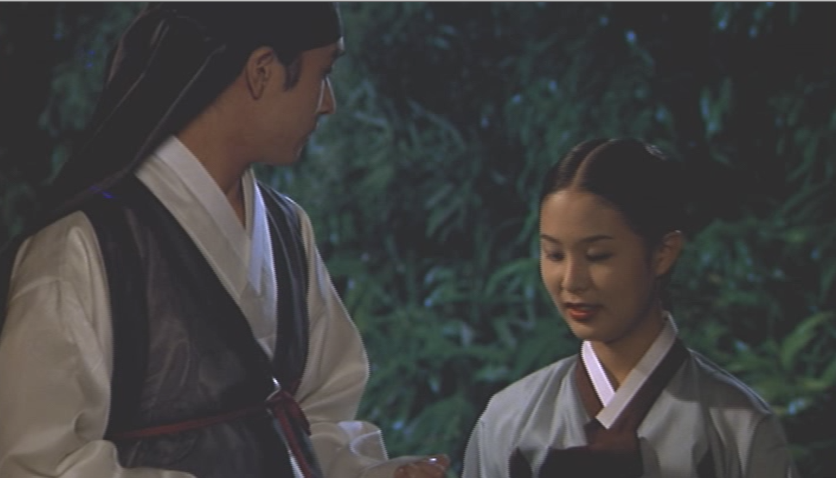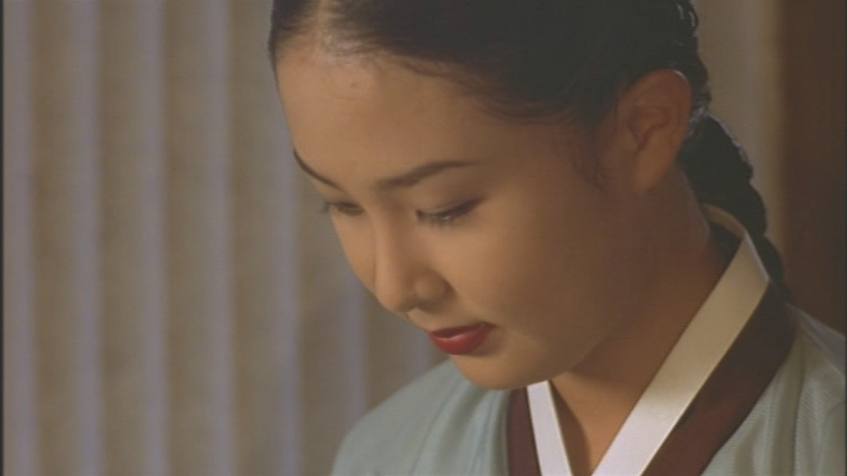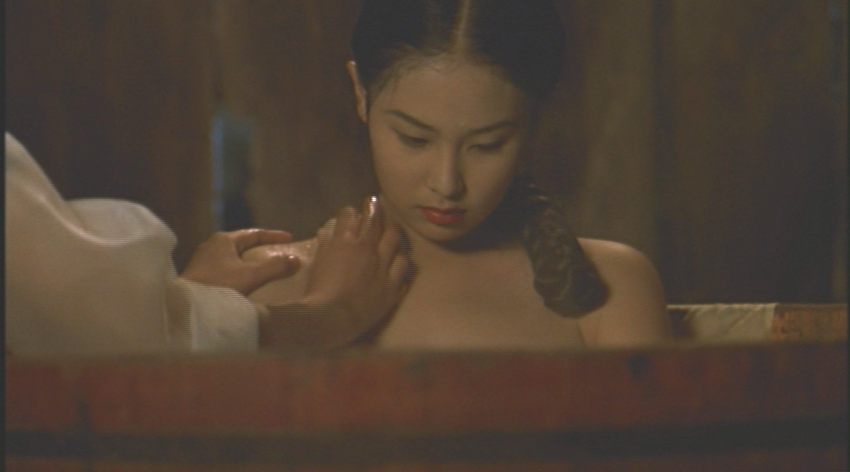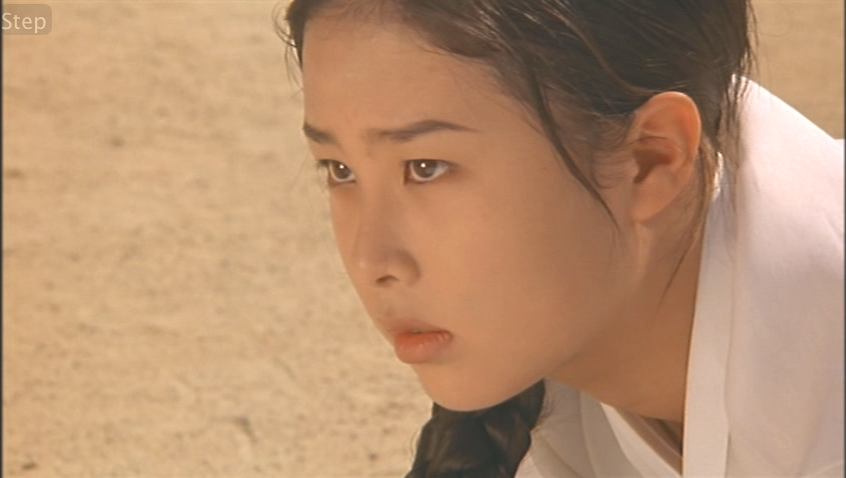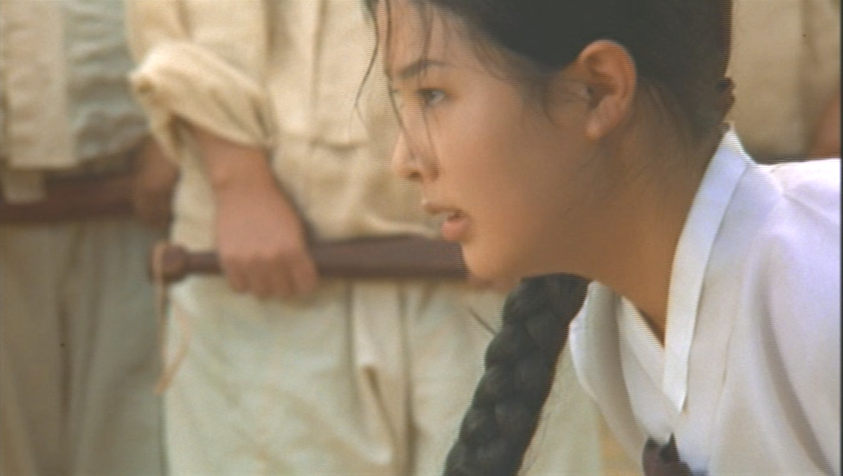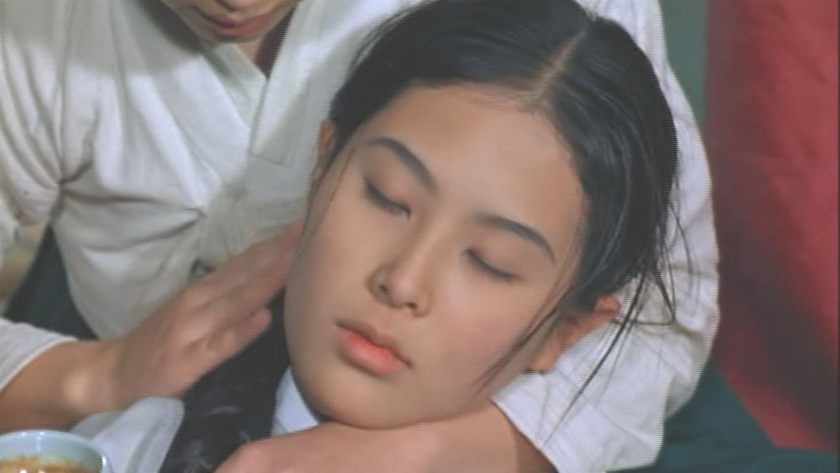Question (singular) for this day (based on premodern reading and material to be screened on this day) —
Special note:
Towards the end of the film, Mongnyong defends Chunhyang when the evil governor criticizes her. I feel this is a key point in terms of values (that is, does Mongnyong defend her in premodern terms or in modern terms?) and I have asked native-language students to provide an alternate translation for that subtitled sentence:
Student One (thank you Wanhee!) writes:
"Don't you think that she refused you because she wanted to maintain her dignity as a human despite your excessive oppression?"
(Basically, the governor is treating Chunhyang as less than human by asking her, a married woman, to sleep with him. Thus, by refusing his order, Chunhyang has tried to maintain her dignity as a human and remain chaste.)
Student Two (thank you Harry!) writes:
The original text:
그것이 당신의 지나친 폭압에 대한, 사람이고자하는 의지였다고 생각하지 않으쇼?
Translation:
Don't you think [Chunhyang 's resistance] it was against the tyranny,
(In this situation it is their moral duty to resist such tyranny)
and strong will to preserve her dignity as a human?Student Three (thank you Sophie!) writes:
Yi: Do you not think that her response to your excessive punishment was an expression of her willingness/willpower to remain as a human being? (or her attempt/efforts to stay as a human?) (the phrase in parenthesis is not a direct translation, but what I am assuming that he means based on context)
Some thoughts: Honestly, I'm not sure if this sentence has a tremendous significance in the overall movie. But I think its purpose is to underline the cruelty of Pyun Hakdo, and Yi is basically implying that Pyun's punishment was irrational and that he was acting like an animal. And that Chunhyang's response was her acting like a proper human being—which in this case, is being faithfulness to her husband.
I've never examined my own language this carefully before, but I just realized that the word "human" (or "sa-ram" in Korean) carries more meaning than its casual use in English. For example, when someone does something extremely immoral in Korean, it is totally natural and common to say "What are you doing? Are you a human being?". I've heard this phrase a lot in Korea but I don't think its as often used in English.
To put it short, being a "human" in Korean is not just being a breathing, living identity, but having a sense of morality and a proper set of values. I guess the values in this case would be what Chunhyang shows. All in all, I'm not sure if this line has any "romantic" significance to the story.
Comment:
By observing some of the changes that are introduced by the medium of film and/or the change in audiences we can get a sense of what to watch for as we take on more complicated analytic adventures. (As review: Chunhyang is an unexperimental, traditional interpretation of a specific premodern text. No other film in the class is like this.)
These are, I think, some of the values represented in the film. How do they measure up to those in the premodern texts? *By "measure up" I mean the usual three elements we consider: present/absent, degree of modification, supportive/challenging.)
- If you are a beautiful and talented women, you might be noticed by a worthy man.
- If you are a woman who does not sell herself cheap, and if you are strong enough to keep Confucian values (absolute loyalty to your husband), which are difficult to keep, you will be rewarded with security and status and that will make you happy.
- Sanctioned sex is playful, exuberant, satisfying, joyous.
- If you are handsome, intelligent, possessed of political savvy, and apply yourself sooner or later to that task at hand, you will be rewarded with high status and may take the beautiful woman you wish to take as your wife.
- Husband and wife can, fundamentally be happy. Unhappiness is the result of external factors, not something about love itself.
- Benevolent ruler (benevolent husband).
- The world might be corrupt but Confucian ideals creates a space which, if they are in order, makes for a happy life.
- Deception, when necessary, is OK, even interesting.
NOTE: True for this and all other films in this class — Please write down these questions on a sheet a paper, perhaps leaving space underneath each for notes, so that you can jot down thoughts while you watch the film.
Question:
Based on the comparison of the premodern literary prose version of Chunhyang and the modern film version, what do you think we should be watching in our other films when asking the question of core romantic values along the three basic comparative lines of present/absent, degree of modification, supportive/challenging?
The below are aspects to help focus your thinking but in class we will stick to this one general question.
- If the premodern text is a story of love, what is love according to the text? From Chunhyang's perspective. From Yi's perspective.
- If the film is a story of love, what is love according to the film? From Chunhyang's perspective. From Yi's perspective.
- Or, do you think either of the above is not about love?
Additional topic if we have time. If not, at least definitely think about this to help you interpret upcoming films and your own films
Interpreting non-discursive messages
Movies are multimedia. Visual effects and soundtracks combine with other multiple non-discursive information to create the interpretive framework of a film or a scene within a film. Here is a series of screen captures from the film, showing one portion of the change in makeup of Chunhyang as she takes on the challenges presented to her. What do the changes in makeup suggest to you?
